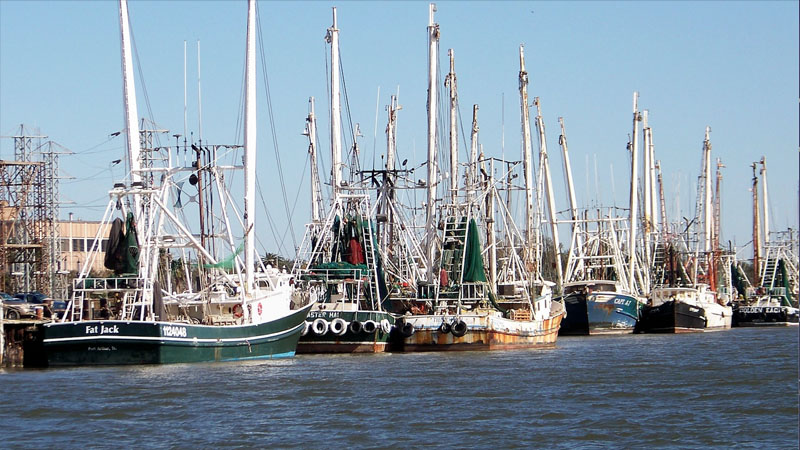Exclusive content

Southeast Texas shrimpers are sounding the alarm, fearing the collapse of the local shrimping industry. The Port Arthur Area Shrimpers Association, representing shrimpers in the region, has raised concerns regarding the influx of imported farm-grown shrimp, which they believe could devastate their livelihoods.
Decline in Profitability
Over the past 18 months, many shrimpers in southeast Texas have been forced to dock their boats due to the soaring costs associated with fishing. Father Sinclair Oubre, treasurer for the Port Arthur Area Shrimpers Association, highlighted the stark decline in prices, with shrimpers now receiving as little as USD 0.75 per pound compared to USD 2.50-3 just a year and a half ago.
The shrimping industry in the United States is facing stiff competition from imported shrimp, primarily from countries like Ecuador, India, Thailand, and Argentina. Commercial freezers across the country are brimming with these imports, flooding the market and further depressing prices for domestically caught shrimp.
Financial Strain on Shrimpers
The financial strain on shrimpers is palpable. The exorbitant costs of fuel alone are staggering, with a typical shrimp boat requiring up to USD 60,000 just to set sail for a three-week fishing expedition. With dwindling profits and mounting expenses, many shrimpers are finding it increasingly unsustainable to continue their operations.
As shrimpers grapple with these challenges, there is a growing fear that the industry could collapse entirely. The livelihoods of countless individuals and the economic vitality of coastal communities are at stake, prompting urgent calls for action to safeguard the future of shrimping in southeast Texas.
Push for Protective Measures
In response to these looming threats, lawmakers and shrimpers alike are rallying behind efforts to implement tariffs and other regulations aimed at protecting the Texas coast shrimping industry. These measures seek to level the playing field and provide much-needed support to domestic shrimpers facing intense competition from overseas producers.